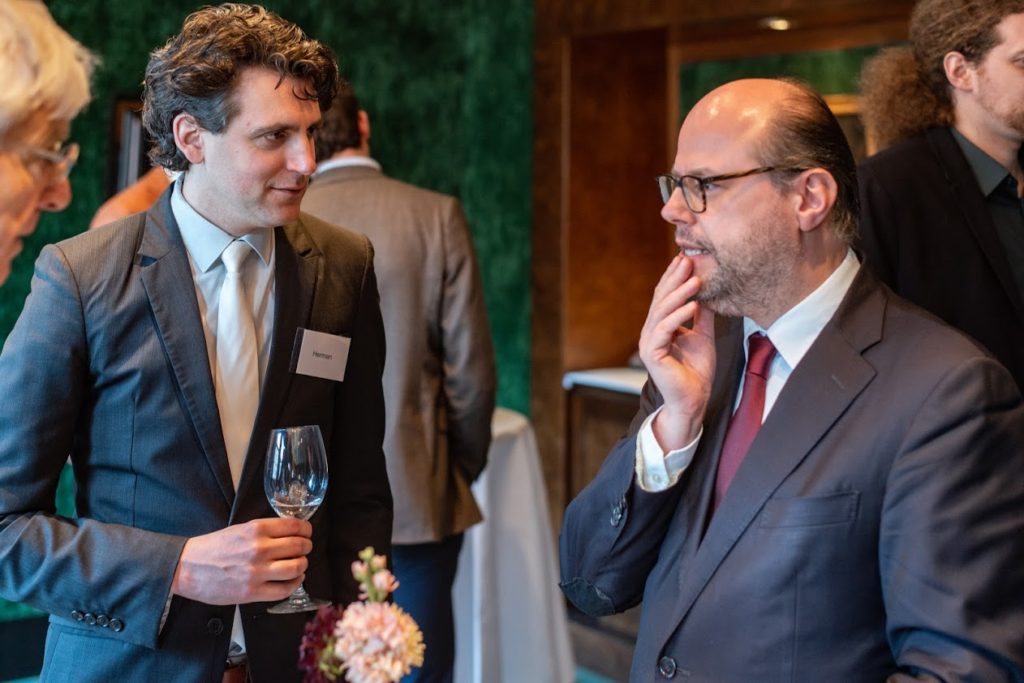Saturday January 23rd our Winter Meeting took place in Amsterdam! Within the context of the CSS themes freedom and prosperity we discussed with Prof. Dr. Arjan van Dixhoorn the development of the European Union and the new fault lines in Dutch politics.
Scroll down for a report of what was discussed!
What did we discuss?
Arjan is one of the driving forces behind the Burgercomité-EU (EU Citizen Committee) and co-author of its Manifesto to the Dutch people, an indictment of the ongoing Europeanisation of our politics and a call for the restoration of Dutch sovereignty. Burgercomité-EU was founded to document the process of Europeanisation, since a critical public discourse about the EU was all but absent in the Netherlands. Its immediate cause was the ratification of the Lisbon Treaty, an only slightly altered version of the European Constitution, which the Dutch public had rejected in a 2005 referendum. In its analysis of this treaty and of several publications by the Council of State (the main advisory organ of the Dutch government), Burgercomité-EU observes the movement towards an ever-closer-union as necessarily concluding in a federal European ‘super state’.
According to eurosceptics, this transformation is well underway: Dutch institutions have become European institutions. They speak of a Copernican revolution, in which the European project has replaced the democratic project as the center point of our political universe and in which popular sovereignty is being silently abandoned. To counteract this process, the Burgercomité presented a citizens’ initiative to the Dutch parliament, pleading for a legally binding referendum on every transfer of competence towards European institutions. Whereas parliament rejected this initiative, in 2016 new legislation made it possible to organize a referendum concerning the upcoming EU association treaty with the Ukraine, Burgercomité being one of the initiating organizations. Again, this referendum was won by the eurosceptic side, and again the government’s response was very inadequate, according to the initiators of the referendum.
What may we conclude?
The Eurosceptic thesis could count both on support and opposition during the meeting. A major point of discussion was the degree of inevitability in the process of Europeanization. To what extent does the Dutch democratic system still have control over the process of transferring sovereignty? Some participants claimed that the incentive structures in which politicians and administrators operate naturally lead to Europeanization: people can work their way up in the public sector by expressing a positive opinion about the European project, whereas someone actually suffers career damage if he becomes known as a eurosceptic. Others pointed out that increasing Europeanization had always taken place within the existing framework of our democratic constitution and therefore had to be seen as the conscious, legitimate choice of the Dutch body politic. If citizens wanted to prevent or reverse transfers of sovereignty, they could vote for parties that supported this. Therefore, popular sovereignty would not have been lost—the Dutch people could leave the EU if they wanted to do so. Another prominent question was the degree of coordination: to what extent was increasing Europeanization centrally pushed for, and to what extent was it the result of a decentralized process? The European Union was also placed in the broader political trend of globalization and the recent anti-globalist reaction. Is euroscepticism a right-wing or even a nationalist phenomenon, or are existing conceptual frameworks insufficient to describe the current political fault lines? In this light, parties such as the Dutch Socialist Party (SP) and the Italian Five Star Movement were considered. Although they are generally seen as progressive-left and not nationalistic, they take a critical stance towards Europeanization and globalization.




